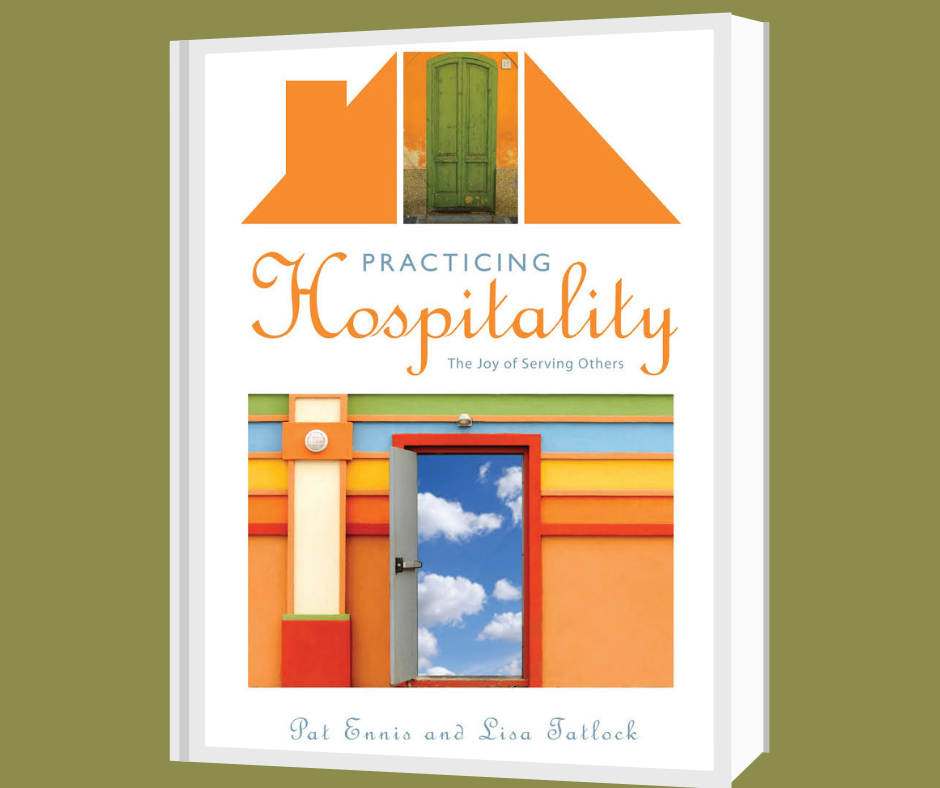Book Reviews
Practicing Hospitality: The Joy of Serving Others, by Pat Ennis and Lisa Tatlock | Review by Rosa Byler

Being hospitable is an ancient tradition; every culture offers variants of the basic components of food, lodging, and conversation. Yet hospitality is rooted in biblical command and precedent; and for Christians, there is the added “joy of serving others” as we follow Christ’s example. In Practicing Hospitality, Pat Ennis and Lisa Tatlock encourage readers to think about hospitality from a biblical perspective, referencing such verses as Romans 12:13, I Peter 4:9, and Hebrews 13:2. Old Testament customs reflect God’s concern for strangers, widows, orphans, and poor people. “God is a welcoming God (65)” who meets needs, provides safety, and pursues relationship even with those who disobey and run from Him. In the New Testament, the Greek word for hospitality (philoxenia) means “love of strangers (54).”
The book’s strength lies in its ability to present not only the theological basis for genuine hospitality, but also clear, practical strategies for implementation. Character qualities developed by hospitable people include humility, sincerity, and a desire to be instrumental in producing righteousness. Hospitality, therefore, is not so much a gift as a skill to be acquired and cultivated. Ennis and Tatlock work to dispel the idea that that hospitality is limited to those with “beautifully decorated homes and menus filled with gourmet foods (17)”; or that it is merely entertaining people we know and feel at ease with, such as our families and friends. They endorse the principle of “Family First,” balancing the establishment of strong family bonds and influential traditions with training children to invest in the lives of others. Those “others” include strangers, singles, widows, the bereaved, and even people with dietary restrictions.
Planning and organization are two key elements of “living in anticipation of extending hospitality (110).” The chapter on home management shows that orderly homes involve diligence and forethought. This includes cleaning schedules, clutter control, a pantry stocked with basic ingredients, familiar or easy menus for unexpected events, and even a proper view of possessions (“…things will wear out, break, and look worn..” when openhandedly used). Not the least of the preparations is praying for guests and planning for meaningful conversations (Tatlock and her husband have “generated a list of questions that help to guide conversations” away from “worthless chitchat” [121].)
Understanding cultural differences helps us to meet the needs of people from different backgrounds. While it would be impossible to list all the potentials for showing honor or offense to those from other cultures, Tatlock includes several basic considerations (of which the most valuable may be “Make an effort to learn” about your guest’s culture and homeland [201]). A practice that Americans consider good manners may be totally the opposite in another country.
The authors take turns writing chapters, allowing the reader a glimpse into practicing hospitality under very different circumstances. Pat Ennis is single, living alone. Lisa Tatlock is married and the mother of five children. In addition to having masters’ degrees and teaching home economics at a Christian college, both women have years of experience in extending hospitality. Simple and readable, this book is a useful tool for women in almost any season of life--from beginning housekeepers to those long accustomed to overnight and Sunday dinner guests. Each chapter ends with questions for thought or group discussion as well as recipes for any foods mentioned in the menu plans. An essential addition to your own or your church’s library!